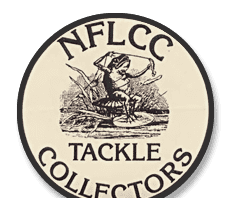Commentary: A Free South Korea Knows How To Face A Parasite
By Michael Leppert
MichaelLeppert.com
The U.S. response to COVID-19 is difficult to explain. If the goal of the explanation is to convince American voters to vote for four more years, good luck.
I watched a clip of Seema Verma, administrator of the Centers for Medicare & Medicaid Services, in an interview on Fox News on Thursday. Then I cringed. I am confident Verma knows that South Korea is a “free†country. However, her spin for the day was clear. “If you look at China and South Korea, right, they had very different approaches. We are a free country… we are giving recommendations to the American people and hoping they adhere to those.â€


She didn’t actually say it wasn’t, but yes, South Korea is a free country too. Americans really ought to know this – we fought a war over it. My dad served in the Army for it, though he was stationed in Japan. There is an awe-inspiring memorial on the Mall in Washington for the Korean War Veterans on the opposite side of the Reflecting Pool from the Vietnam War Veterans Memorial. It is one of my absolute favorites.
The White House doesn’t want Americans to compare our situation to South Korea for obvious reasons. To be blunt, their government has risen to the occasion and ours has not.
At this stage in the pandemic, it is too early to quantify final rates of infection and death tolls. Those numbers are rolling like a downhill train off its tracks. They are incorrect almost as soon as they are written. That is the situation in America though, which is profoundly different than the one in South Korea.
Tim Mullaney published an important piece in the Independent on Thursday that frames the two-country comparison in a way that will hang around the Trump administration’s neck for the next seven months. And it should. Both countries received their first local case of the coronavirus on the same day, Jan. 20. After that, our shared experiences with it drastically parted ways.
Mullaney details that “the (South Korean) government summoned every maker of medical tests in the country to a Jan. 27 meetings and told them to develop a test for the virus right away. The winning design was approved by government regulators on Feb. 4 and shipped within days.†The aggressive and successful testing strategy was followed by isolation and tracing of the spread in each case. Their results are remarkable in contrast to ours: a little under 10,000 cases and 169 deaths as of Thursday.
In the U.S., we have seven states with more deaths than that. By this time next week, I expect that number to be at least 10.
On Feb. 28, President Trump referred to the coronavirus as a “new hoax.†On March 9, he tweeted a comparison of the pandemic to seasonal flu statistics.
In a detailed Wall Street Journal article, last updated on March 19, the performance of the Centers for Disease Control and Prevention is detailed. It is a horrifying failure. The CDC has largely become silent in recent weeks as the agency’s failure has become more well known. CDC Director Robert Redfield was an early fixture at President Trump’s side during the “coming to grips†period of the nation’s pandemic experience, but now he and his agency are nowhere to be found. The once impeccable reputation of this scientific institution now reels in the wake of the coming devastation.
In her Fox News interview, Verma clearly wanted to compare the U.S. response to Italy’s experience. Vice President Mike Pence was making the same comparison on Wednesday in an interview with CNN, saying at least two sources of “modeling†confirm the similarities. In an attempt to inspire, he went on to say to the American people “over the next 30 days, the future is in our hands.â€
Correct, Mr. Vice President. But there is no escaping that the 60 days prior to this one is all on the leadership of the Trump administration and its catastrophic failures.
America is left to root for a new source of national inspiration, possibly a newfound coalition of state leaders, to see us through this. The primary element missing from the daily briefings at the White House is that they are not instructing Americans to do anything. Governors and mayors are.
Parasite, the masterpiece film that won four Oscars in February, was a cultural story based in Seoul. The movie title might imply it was foreshadowing of today’s crisis, but of course, it isn’t. Though it is yet another example of how Americans should watch and learn from South Korea, instead of painfully hiding from it.
FOOTNOTE: Michael Leppert is a public and governmental affairs consultant in Indianapolis and writes his thoughts about politics, government and anything else that strikes him at MichaelLeppert.com.
City-County Observer posted this article without opinion, bias or editing.




This is really fake news. The writer has little if any understanding of Korea or their culture. I lived there and they do have a culture, they are a homogenous population, little if any diversity, tremendous respect for family and friends. For the most part they follow rules and peer pressure to respect and follow rules is intense and so is shamming for failure to comply. And remember this above all else, those found infected are basically put on electronic house arrest and monitored closely. Shame, Trump isn’t here to call this writer out, fake news at it’s best.
Comments are closed.